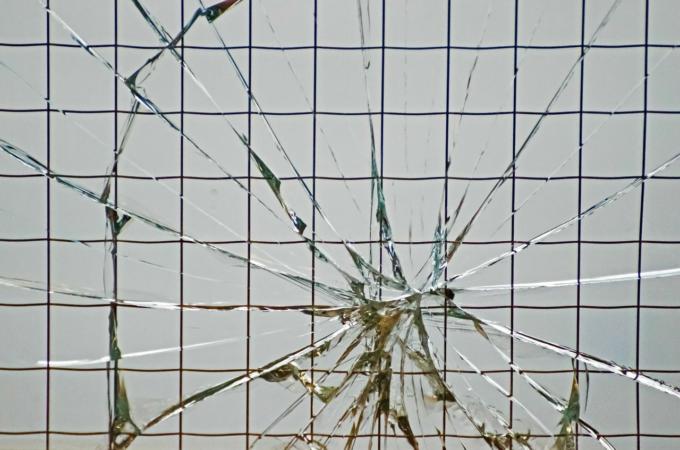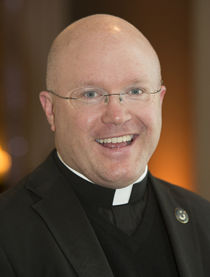
Faith
Various friends and strangers, journalists and faithful, have continued to ask me various small- and big-picture questions that deserve forthright answers.

Landry
Over the two last weeks there have been various developments, bad and good, in the clergy sex abuse scandals.
It was announced that former Cardinal Theodore McCarrick is now living a life of prayer and penance at St. Fidelis Friary in Victoria, Kansas, in the Diocese of Salina, which has brought confusion insofar as the Friary is located right next to an elementary school. Bishop Robert Morneau, a retired auxiliary bishop in Green Bay, withdrew from public ministry for failing to report an incident of priestly sexual abuse in 1979. More state attorney generals and district attorneys launched investigations into the Catholic dioceses, often with Diocesan cooperation. Several priests were removed for accusations of abuse decades ago detailed in newly received letters. Pope Francis expelled Fernando Karadima, the most notorious abuser in Chile, from the priesthood. Archbishop Carlo Maria Viganò published another letter. The Catholic Church in Germany presented a comprehensive report describing that between 1946-2014, 1,670 clergy had abused 3,677 minors.
On the positive side, the U.S. Conference of Catholic Bishops (USCCB) announced on September 19 four steps they were taking to try to respond to the crisis: a full investigation of the accusations against Archbishop McCarrick by trained investigators; the creation of a third party system to receive confidential complains of sexual abuse of minors and sexual harassment and misconduct with adults by bishops; the formation of a canonical committee to develop policies for ensuring proper restriction on bishops who have resigned or been removed because of sexual misconduct; and the formulation of a code of conduct with regard to sexual misconduct by bishops with minors or adults or episcopal negligence with regard to such cases.
Various friends and strangers, journalists and faithful, have continued to ask me various small- and big-picture questions that deserve forthright answers. I will try again to respond to some of those queries.
What to make of the bishops' response?
The leadership of the USCCB has been working hard, with haste and determination to address the scandals. Representatives flew to Rome to meet with Pope Francis to ask for his assistance. No official details have emerged from that meeting, but the US Bishops did not waste any time in announcing four things that they are committed to doing on their own.
They have launched an investigation in four Dioceses where McCarrick has served, to try to discover everything they can about the extent of McCarrick's abuse and how he was able to get away with it so long. While a full investigation of the McCarrick accusations cannot be completed without access to Vatican files, the U.S. Bishops are not allowing themselves to give in to excuses or inertia, but are doing everything they can while persistently asking for assistance to find out what they cannot.
They are working hard to fill in the holes of previous policies on clergy sexual abuse, by making policies that cover bishops with regard to the sexual abuse of minors and extending clear policies to prelates' sexual sins with adults. They intend to form clear standards about restrictions for bishop abusers or enablers, so that everyone will be on the same page if or when a bishop is restricted. They are also establishing a clear reporting system for accusations against bishops and protocols for what to do with those accusations. Much will be in the details, but all of these seem to be solid, needed steps in the right direction.
But there's another step that they left unaddressed and if it remains omitted, the staircase won't reach where it must: clear policies with regard to the sexual misconduct among priests and deacons -- and not just bishops -- with those over 18. Some argue that there's no need for such a policy because Canon 1395 of the Code of Canon Law has punishments for clerics who scandalously persist in external sins against the sixth commandment and for those who use force or threats in compelling others to sexual sins. The problem, however, is that in many places this Canon is not employed or enforced against clerics in such circumstances, enabling unfaithful priests to cheat on their vocations, sometimes flagrantly, without consequences.
Minimally I believe the bishops needs collectively and individually to state that they intend to apply Canon 1395 with consistent rigor to remove from the priesthood those priests who repeatedly or without full repentance sin against the sixth commandment and against their promise or vow to celibate chastity.
Otherwise, it would be a contemporary example of Lord's metaphor of building a tower without enough bricks or engaging in war without sufficient troops (Lk 14:28-32). That's because a Church culture that tolerates priests sinning with consenting adults is corrupt, and that rot easily metastasizes into the Church's not taking sin seriously in general or looking the other way to sins with unconsenting adults or with minors.
That brings us to the next question.
What to do about corruption in the Church?
St. John tells us that there are three basic forms of corruption, in individuals and in the Church, coming from three different but related sinful desires. He defines them as the "lust of the flesh, lust of the eyes and the pride of life" (1 John 2:16), which manifest themselves, respectively, in the corrosive sins of sex, money and power. In many cases, and in the clergy sex abuse crisis as a whole, we find all three on simultaneous sordid display.
It has come out that former Cardinal McCarrick not only abused power to try to satisfy his carnal concupiscence but was able to get away with so much because he was a prodigious fundraiser for so many important causes and charities. In the Church as a whole, over several decades, various bishops failed to address adequately the sexual scandals because they were more concerned with the Church's reputation (pride) or the Church's portfolio (money).
This is one of the reasons why attempts to say that the problem is all about "clericalism," an exaggerated sense of clerical privilege, are so obviously inadequate. Clericalism, at most, addresses the situation of power or pride of life. It doesn't address the corruption of the flesh. It doesn't respond to the degeneracy of spiritual worldliness and ecclesiastical materialism.
Pope Francis is brutal with regard to denouncing corruption. He regularly distinguishes between "sinners" and "the corrupt." Sinners are those who recognize they're fallen, repent, come to receive God's mercy, do reparation and commit themselves to living holy lives. The corrupt, he says, don't feel ashamed of their sins, don't repent, and become "solidified in sin," like "varnished putrefaction," attractive on the outside but dead on the inside. They're hypocrites and fakers, he says, living double lives "with good manners but evil habits." How many abusers and enablers were charming company but rotting within!
The response to this type of three-fold corruption must involve effective policies and protocols, but even the best designed and effectively implemented of them won't go far enough. What is needed is living the evangelical counsels, individual and ecclesially. Poverty of spirit is the antidote to the idolatry of money; chastity is the remedy for lust; obedience to God is the antiserum for the toxins of pride and power. The ultimate remedy is for clergy and the whole Church to yoke ourselves to the Poor, Chaste and Obedient High Priest by treasuring his wealth, love and will as our pearl of great price.
How can the Church preach morals to others when it can't keep it's own house clean?
The scandals certainly make it much more difficult -- and those who would like to lead culture further away from Church teaching on various issues are already trying to take advantage of the Church's damaged reputation. But we're called to preach in season and out of season (2 Tim 4:2). Even though the currency of the Church's words has devalued, the Church's charity remains much stronger and stabler, like gold bullion. We must, however, spend ourselves much more in backing up the teaching Christ has entrusted to us with deeds, the most urgent of which are cleaning up our house and making the wounded feel genuinely welcomed.
How can a priest or bishop celebrate Mass or hear confessions in a state of serious sin?
This question has been raised often, especially from religious women, daily Mass goers and those whose main spiritual fight is against lukewarmness: after many years battling venialsin, they just can't fathom a priest's celebrating Mass in a state of mortal sin and adding to the sacrilege.
Sometimes there's been a loss of faith so that a priest has become an ecclesiastical bureaucrat and liturgical functionary, no longer praying, no longer seeking to live as an icon of the Lord Jesus. More often, I think, they have lost a sense of sin, no longer seek to chop off body parts and pluck out eyes if they lead them to sin (Mt 5:29-30), making excuses for not getting to Confession, and letting the serpent wrap himself around them like a poisonous cobra. The same thing can happen in all members of the Church, when they approach holy communion without moral certainty that their souls are in communion with the Lord. There's self-deception, denial and excuse making of one sort or another so that the words "I confess ... that I have greatly sinned ... through my own most grievous fault" are totally insincere. That insincerity leads to general duplicity of life.
What to say to those who are being tempted to leave the Church because of the scandals?
I normally try to bring them to St. Francis de Sales' words about not committing spiritual suicide through cutting ourselves off from Christ and his sacraments that I wrote about in a previous column. Bishop Barron's words about not abandoning the Church but fighting for her, or even Peter's words to Jesus, "To Whom Shall We Go?," I've found helpful too in my conversations. It's not words as much as body language, however, that will be persuasive. We need to show what the Church truly is, that Christ is still present and at work despite the sins, and discuss honestly why we have chosen to stay in the Church out of faith, hope and love in the One who died for us and will never betray us.
Many other questions remain, which hopefully can be tackled in subsequent columns.
- Father Roger J. Landry is a priest of the Diocese of Fall River, Massachusetts, who works for the Holy See’s Permanent Observer Mission to the United Nations.
Recent articles in the Faith & Family section
-
Scripture Reflection for April 21, 2024, Fourth Sunday of EasterJem Sullivan
-
The new Temple: How Easter changes religionDr. R. Jared Staudt
-
The wonder of Ordinary TimeLucia A. Silecchia
-
Is there still responsibility for past sins after confession?Jenna Marie Cooper
-
Wounds, not scarsJaymie Stuart Wolfe


















